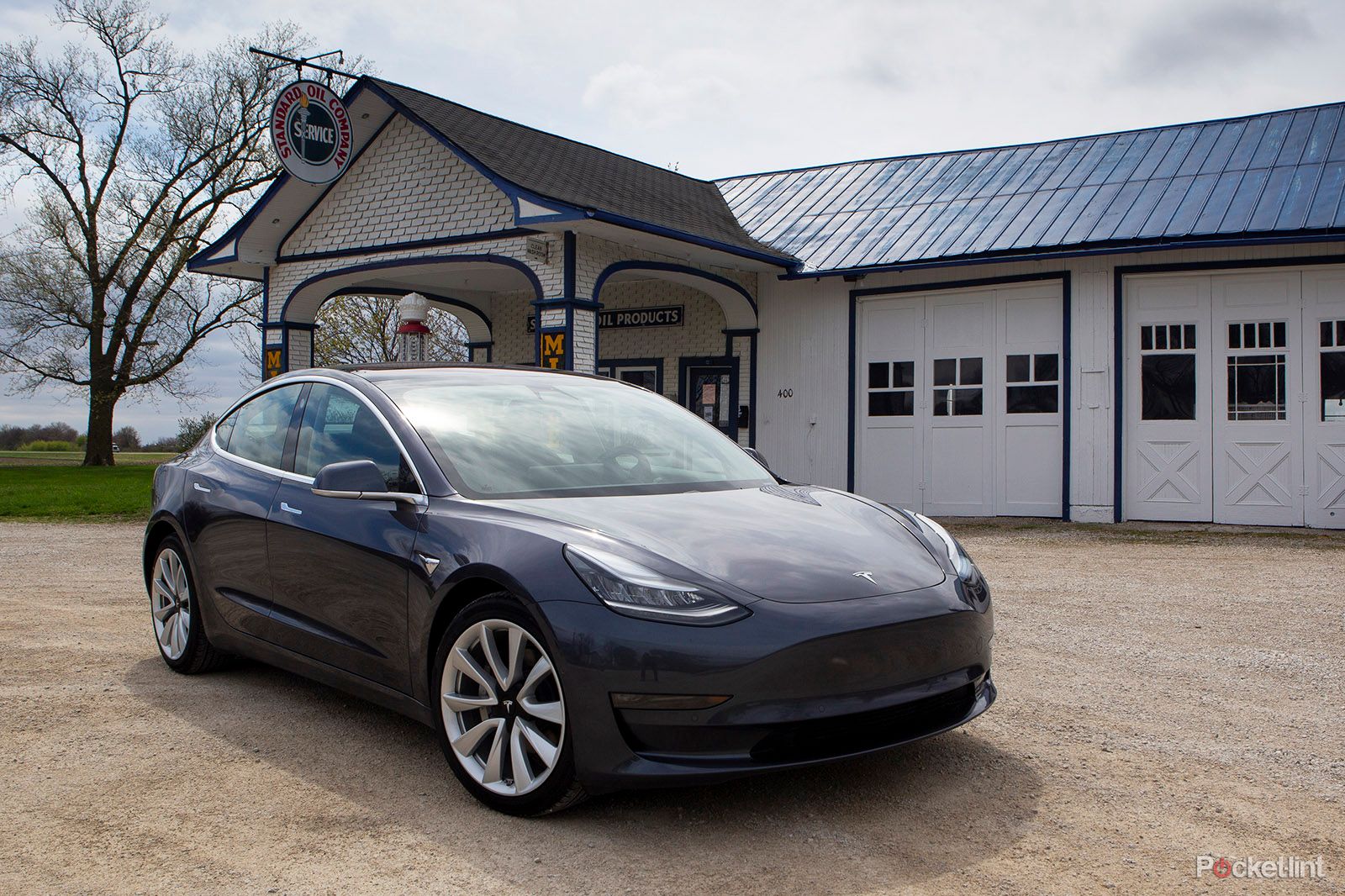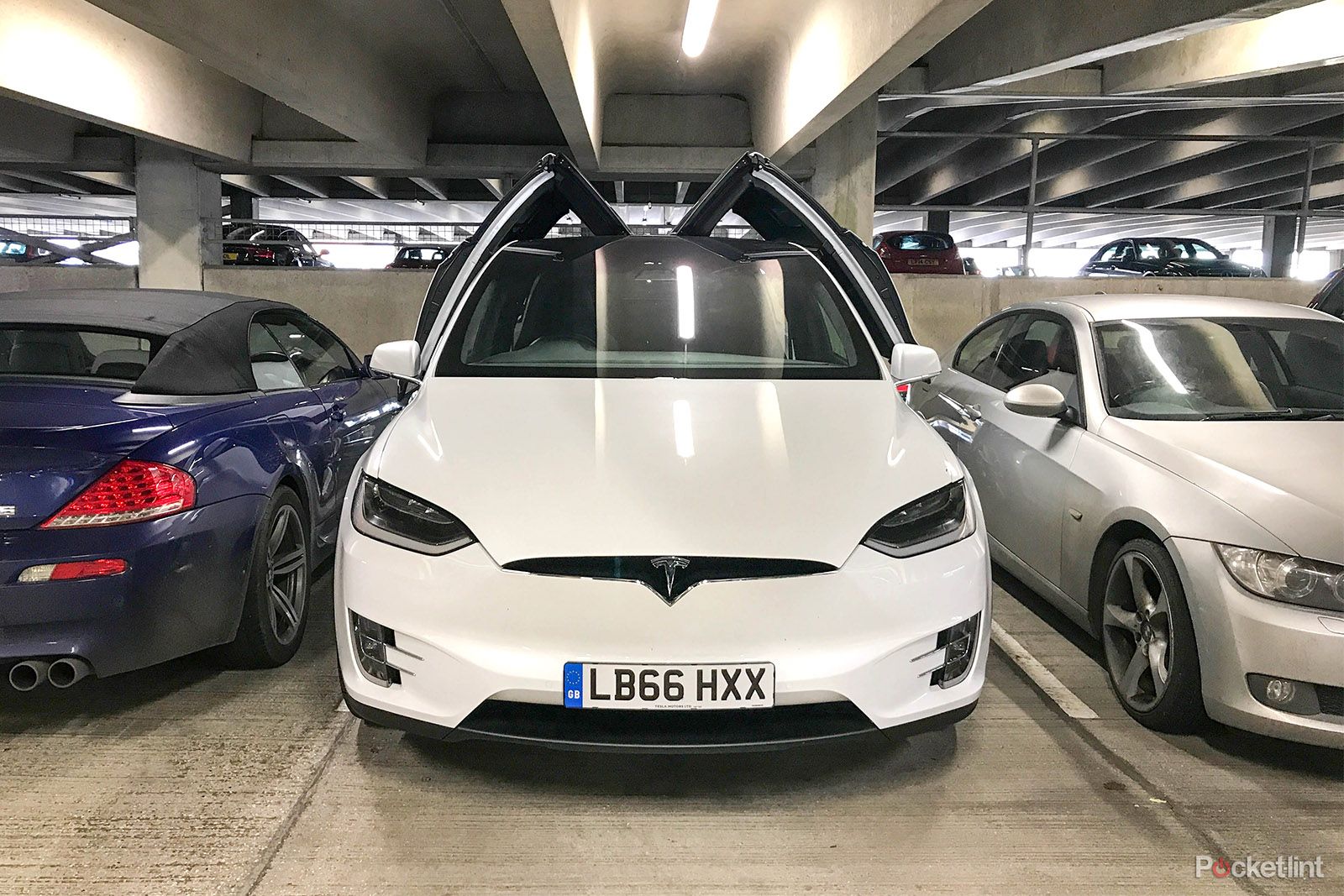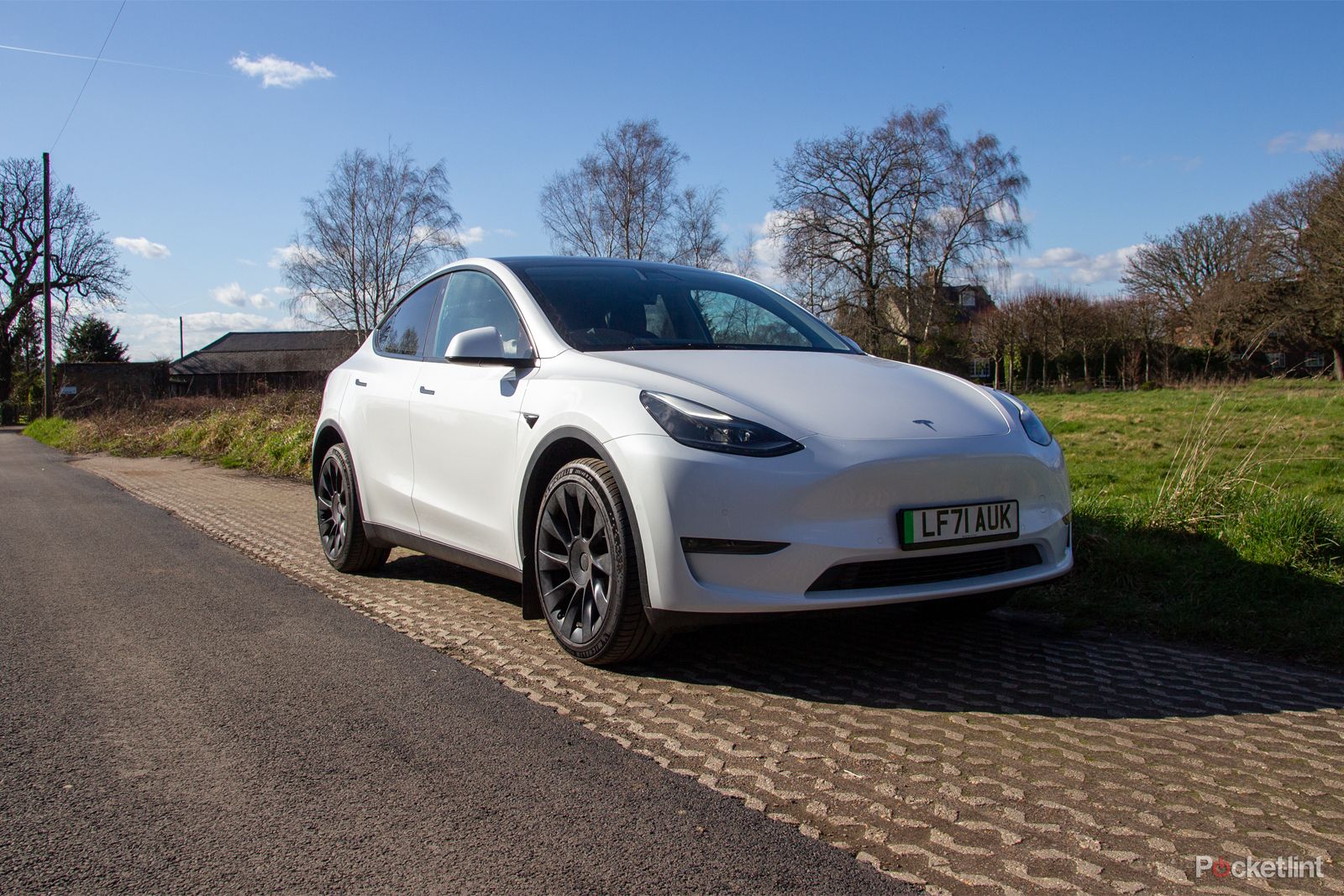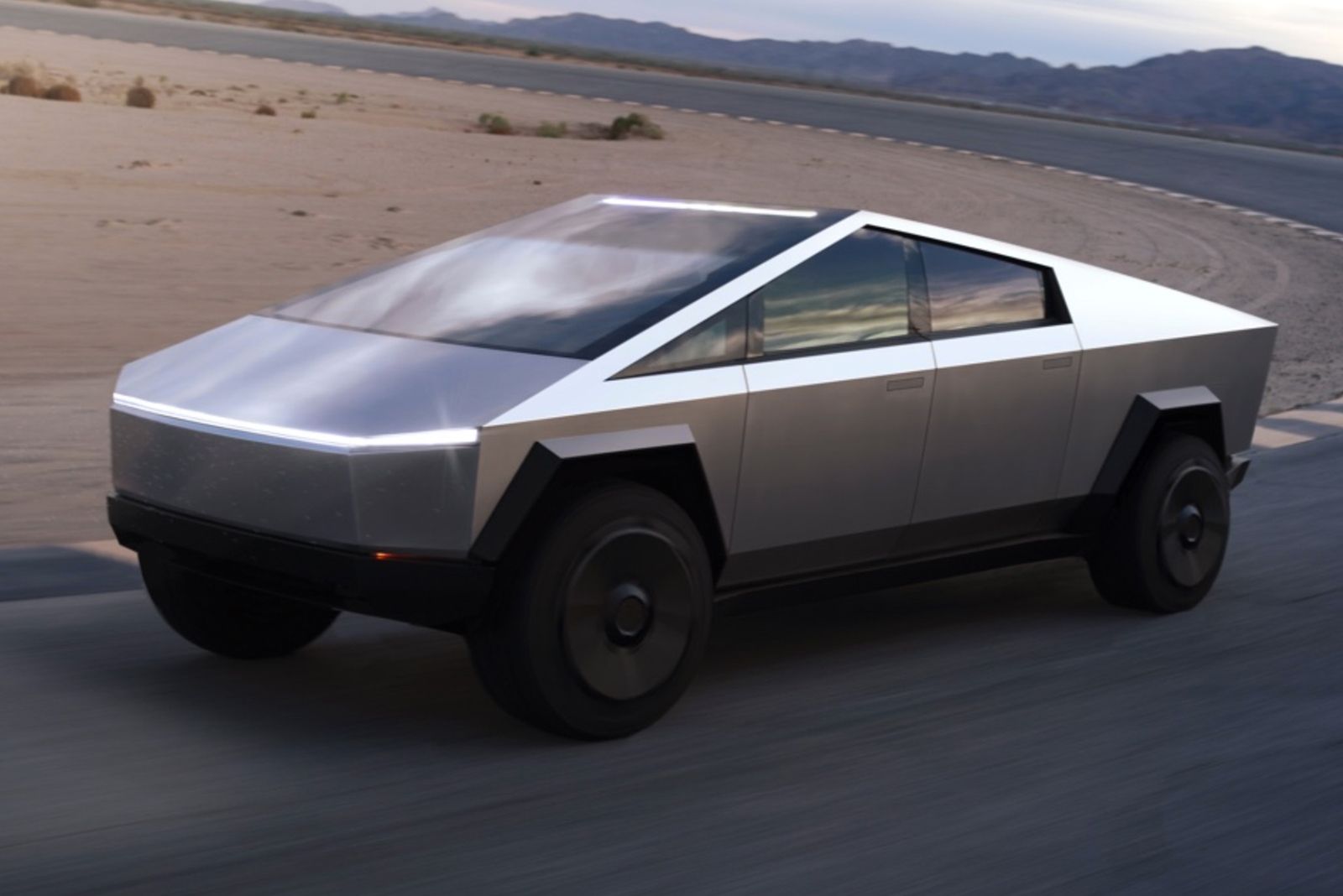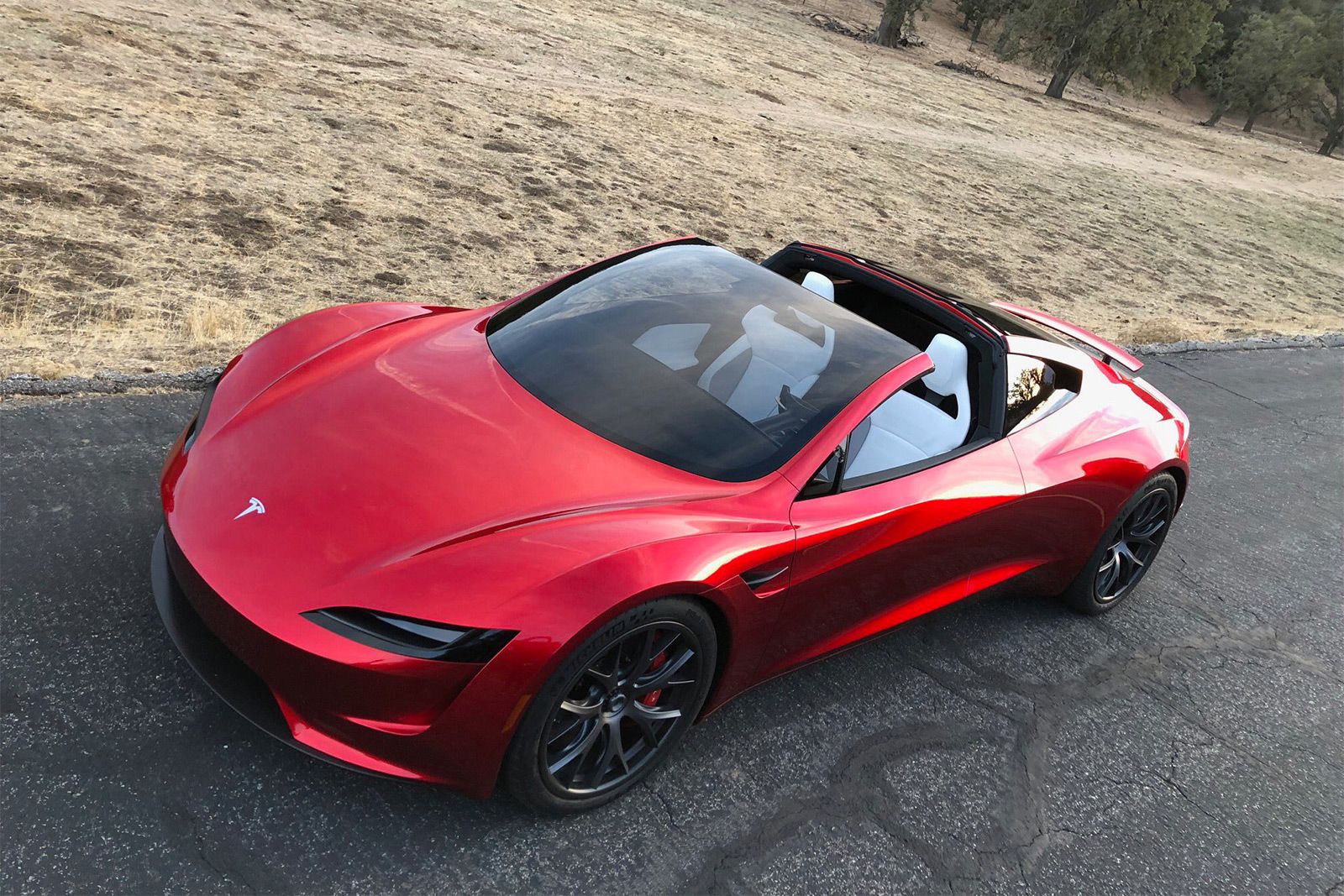Key Takeaways
- Tesla offers a range of electric car models, including the executive Tesla Model S, the compact SUV Model Y, and the family-friendly Model X.
- Autopilot, Tesla’s advanced driver assistance system, is included in all models and offers features like adaptive cruise control and automatic lane changes.
- Tesla Superchargers are charging stations that can recharge a near-dead battery in about 70 minutes, and new V4 Superchargers can potentially halve the charge time for compatible vehicles.
You can’t escape Tesla. Elon Musk’s electric car company has been credited with fuelling the boom in electrification, making mass-market electric cars a reality for many drivers and spurring the rest of the industry into action. It’s been a huge success, and the number of Teslas you see on the road is testament to that. But there’s increasing competition and more options. What started as a conversation about the Tesla Model S and how fast it is, has spawned into real buying decisions for customers.
So how do these Tesla models compare?
What is Tesla?
Tesla is an electric vehicle (EV) maker located in Palo Alto, California. Its goal is to produce electric cars that are either premium or affordable for everyday consumers – with an expanding portfolio of models. CEO and founder Elon Musk runs the company.
Outside of EVs, Tesla is also exploring a wider ecosystem, offering a number of other solutions that leverage its experience in battery power, such as solar panels and power storage.
Which Tesla car is right for you?
Tesla is always looking to expand its offering. With the Model S making a huge impact on the market as one of the first pure electric cars, it’s a company that’s hugely disruptive. All the ranges we’ve provided are from Tesla’s cited ranges (from its US pages, the UK and European pages might be slightly different), but will vary depending on driving style and environmental factors. Tesla has also changed the positioning of its models recently and, in some cases, offers an upgrade to unlock power or issues firmware updates that change the official figures on ranges. Prices for Europe are from Germany.
There are four current on-sale models, with a number of different versions to choose from. Note that recently the Model S and Model X stopped being listed as available in the UK and Europe, so there are either no prices, or old prices, for these models. The most recent update is the new Model 3 in September 2023; Cybertruck deliveries are expected later in 2023 and we’re expecting an affordable model, more compact than the Model 3, in the future.
Tesla Model S
- Starting price: $74,990 / £91,980 / €94,990
- Availability: US, UK and Europe
The Tesla Model S is very much an executive saloon, with similar long and low design lines as you might find on a Jaguar. The Model S originally launched in 2012 and helped to put Tesla on the map as an automaker. Tesla has continued updating the Model S since its release, and there are currently two versions: Model S and Plaid. The Long Range, Standard and Performance model names have also been recently used.
While some earlier editions of the Model S offered rear-wheel drive, all the latest Model S models operate in all-wheel drive (AWD). The latest addition – and flagship – is the Plaid model, offering sub-2.0s 0-60mph – with the Plaid model offering tri-motor propulsion (over the Model S’s dual-motor).
All models offer Autopilot as standard – which brings a range of driver assistance – but there’s the option for Enhanced Autopilot for $6,000 (£ / €3,800) which adds navigation to Autopilot, self-parking, auto lane changing, Summon, and Smart Summon, or there’s the full self-driving upgrade at $12,000 (£6,800 / €7,500), which adds traffic light and stop sign control, and autosteer on city streets.
- Model S: AWD, 405 miles, 0-60mph in 3.1s
- Model S Plaid: AWD, 396 miles, 0-60mph in 1.99s
Tesla Model 3
- Starting price: $38,990 / £39,990 / €42,990
- Availability: US, UK and Europe
The Tesla Model 3 launched in the US in 2016 as the affordable alternative to the Model S. In 2023 a pretty substantial update was announced with interior design and material changes, and exterior styling to make it more aerodynamic. At the time of writing, the new Model 3 is preparing to launch in Europe, it will start deliveries in October 2023. It is slated for availability in UK and Ireland in 2024; the US availability has not been confirmed, but we’re guessing it will be within a similar timeframe.
A four-door sedan, the Model 3 launched with a range of options, but that’s been refined to just three that are currently available. Ranges are based on combined figures. Autopilot is standard, but Enhanced Autopilot costs $6,000 (£3,400 / €3,800) the full self-driving upgrade is $15,000 / £6,800 / €7,500.
- Model 3: RWD, 272 miles, 0-60mph in 5.8s
- Model 3 Long Range: AWD, 325+ miles, 0-60mph in 4.2s
- Model 3 Performance: AWD, 315 miles, 0-60mph in 3.1s
2023 Model 3:
- Model 3: RWD, 318 miles, 0-62mph in 6.1s
- Model 3 Maximum range: AWD, 390 miles, 0-62mph in 4.4s
Tesla Model X
- Starting price: $79,990 / £98,980 / €99,990
- Availability: US, UK, and Europe
The Tesla Model X is the “soccer mom’s” answer to the electric car. It’s an SUV-style EV capable of seating seven people. It uniquely features rear Falcon Wing doors (think the DeLorean in Back to the Future) that, along with the huge touchscreen inside, will make all your kids think you bought a car from the future. There are two models, but three different seating configurations – you can choose 5 (included), 6 ($6,500 extra), or 7 ($3,500 extra). Autopilot is included, again with Enhanced Autopilot for $6,000 (£3,400 / €3,800) and the full self-driving upgrade option is $15,000 / £6,800 / €7,500.
- Model X: AWD, 348 miles, 0-60mph in 3.8 seconds
- Model X Plaid: AWD, 333 miles, 0-60mph in 2.5s
As with the Tesla Model S, there have been a number of different versions of the Model X, but it’s now distilled into the Model X and Plaid – the latter having that tri-motor arrangement.
Tesla Model Y
- Starting price: $43,990 / £44,990 / €44,890
- Availability: US / UK / Europe
The Tesla Model Y fills the space between the Model 3 and the Model X, as a compact SUV. It will seat five, offers plenty of space, but will really appeal to those looking for something more affordable than the Model X. There’s the option for a $1000 tow hitch, either five or seven seats ($4000), and the same Enhanced Autopilot or Full Self-Driving Capability upgrades as the other models.
The compact SUV segment is the biggest selling at the moment, so it’s a key target for Tesla. Tesla originally suggested four models would be available, but currently offers three specifications:
- Model Y: AWD, 279 miles, 0-60mph in 5.0s
- Model Y Long Range: AWD, 330 miles, 0-60mph in 4.8s
- Model Y Performance: AWD, 303 miles, 0-60mph in 3.5s
Tesla Cybertruck
- Starting price: $39,900/£TBC
- Availability: Deliveries to start 30 November 2023
The Cybertruck was unveiled in November 2019, as Tesla switched its attention to a pick-up truck format. This is likely to be a lot more popular in the US than other regions, although reservations are open in other regions too.
The Cybertruck has a unique angular design, with a stainless steel body and armoured glass – it will also have 100 CU FT (2830 litres) of storage, and towing capacity of 7,500+lbs. All these specs are for the US, with Tesla saying international specs will be developed depending on demand.
There are initially three versions of the Tesla Cybertruck being suggested:
- Single Motor RWD: 250+ miles, 0-60 in <6.5 seconds
- Dual Motor AWD: 300+ miles, 0-60 in <4.5s
- Tri Motor AWD: 500+ miles, 0-60 in <2.9s
The Dual and Tri Motor versions will arrive first, with deliveries now confirmed to be from 30 November 2023. However, the price is still unknown, but Tesla has faced manufacturing challenges for Cybertruck.
Tesla Roadster
- Starting price: $200,000, reservations open
- Availability: Expected in 2024
The Tesla Roadster started the whole thing in 2008 – and was due to return in 2020 (it’s been reviewed by some US sources, but otherwise is still only up for reservations only). In May 2023, Elon Musk said that he was hoping for production to start in 2024.
The Roadster’s aim is to be the fastest electric car on the road, with some impressive figures announced so far, with a 0-60mph speed of 1.9 seconds and a top speed over 250mph. It will seat four and has a removable glass roof.
There are two versions up for reservation: the Roadster and the Founders Series, with a $50k difference in price between the two. The base specs break down as follows:
- Roadster: AWD, 620 miles, 0-60mph in 1.9 seconds
What about future models?
Semi
The Tesla Semi is exactly what it sounds like: a Semi-trailer truck. A prototype debuted in late 2017 and was planned for production in 2020 – but it hasn’t officially surfaced yet.
Tesla initially claimed the truck would have a 500-mile range on a full charge and would be able to run for 400 miles after an 80 per cent charge in 30 minutes using new “Tesla Megacharger” charging stations.
Musk said the Semi would come standard with Tesla Autopilot, allowing semi-autonomous driving on highways.
Tesla Model 2
Tesla is thought to be working on a smaller car, designed for even greater scale. It currently doesn’t have a name, but was teased in May 2023, where Elon Musk said: “We are actually building a new product. We’re not just sitting on our hands here.” There’s currently no timescale on a new model, but it has been confirmed that it will get a proper launch at some point in the future. Tesla would be joining the competition, who are all looking to produce more affordable electric models in the coming years.
What is Tesla Autopilot?
Autopilot is part safety feature, part James Bond-level car tech. It uses cameras that are strategically placed, allowing the car to do things like keep in the centre of a road lane, change lanes, and be more adaptive while in cruise control. At a basic level that will allow adaptive cruise control and steering, while Autopilot Enhanced also allows automatic lane changes, parking and Summon (from the app on your phone).
The goal of Autopilot is to eventually lead to autonomous driving. Starting in October 2016, every car Tesla produced came with the inherent hardware to use Autopilot. By 2019 it was standard.
Tesla continues to push update options, with more enhanced self-driving features, the latest of which include integration with navigation – so the car knows where you’re going. The latest updates aim to deliver Autopilot control around city streets.
What are Tesla Superchargers?
Tesla Superchargers are charging stations that have popped up all over the globe in the past 10 years. It’s the electric car equivalent of a gas station. While users can charge their car at home with wall-mounted chargers, Superchargers can recharge a near-dead 85kWh battery in about 70 minutes or get it to 50 per cent in 20 minutes.
Tesla cars ordered before January 2017 can use the Supercharger stations for free, while all other cars are allotted 400kWh per year for free. After that users will have a small fee, but it’s still nothing compared to what filling up a tank of gas costs.
Tesla more recently introduced V4 Superchargers, which will increase the charging to 250kW, potentially halving the charge time for compatible vehicles. Tesla’s cars are also compatible with other chargers (as long as the plug fits), and Superchargers are no longer exclusive to Tesla models, with wider availability. In the US, many vehicle manufacturers are adopting the same NACS connection as Tesla, so all chargers can offer the same plug.
How can you buy a Tesla?
In 2019, Tesla announced all its dealerships would close. It’s moving to online-only sales via Tesla’s site. However, a few select shops in high-traffic areas will stay open and serve as showrooms for Tesla cars.
Does Tesla make anything else?
Solar Roof
Most of us have seen the homes with gigantic solar panels strapped to their roof. Sure, it’d be cool to lower your electric bill, but it’s not exactly pleasing to the eye. That’s why Tesla came up with Solar Roof. The concept is simple: what if every shingle on your roof was a solar panel? To find out more, see our guide here.
Powerwall
Tesla’s Powerwall is designed to store solar energy. One problem that plagues solar power users is the ability to store energy for use when the sun is down. Powerwall solves that issue. To find out more, see our guide here.
Tesla Shop
At Tesla’s online shop, you can buy some nifty Tesla-branded apparel, but more importantly, you can get car accessories, like a wall-mounted charging port for your home or mobile connectors to charge your car on the go.
Trending Products

Cooler Master MasterBox Q300L Micro-ATX Tower with Magnetic Design Dust Filter, Transparent Acrylic Side Panel, Adjustable I/O & Fully Ventilated Airflow, Black (MCB-Q300L-KANN-S00)

ASUS TUF Gaming GT301 ZAKU II Edition ATX mid-Tower Compact case with Tempered Glass Side Panel, Honeycomb Front Panel, 120mm Aura Addressable RGB Fan, Headphone Hanger,360mm Radiator, Gundam Edition

ASUS TUF Gaming GT501 Mid-Tower Computer Case for up to EATX Motherboards with USB 3.0 Front Panel Cases GT501/GRY/WITH Handle

be quiet! Pure Base 500DX ATX Mid Tower PC case | ARGB | 3 Pre-Installed Pure Wings 2 Fans | Tempered Glass Window | Black | BGW37

ASUS ROG Strix Helios GX601 White Edition RGB Mid-Tower Computer Case for ATX/EATX Motherboards with tempered glass, aluminum frame, GPU braces, 420mm radiator support and Aura Sync


